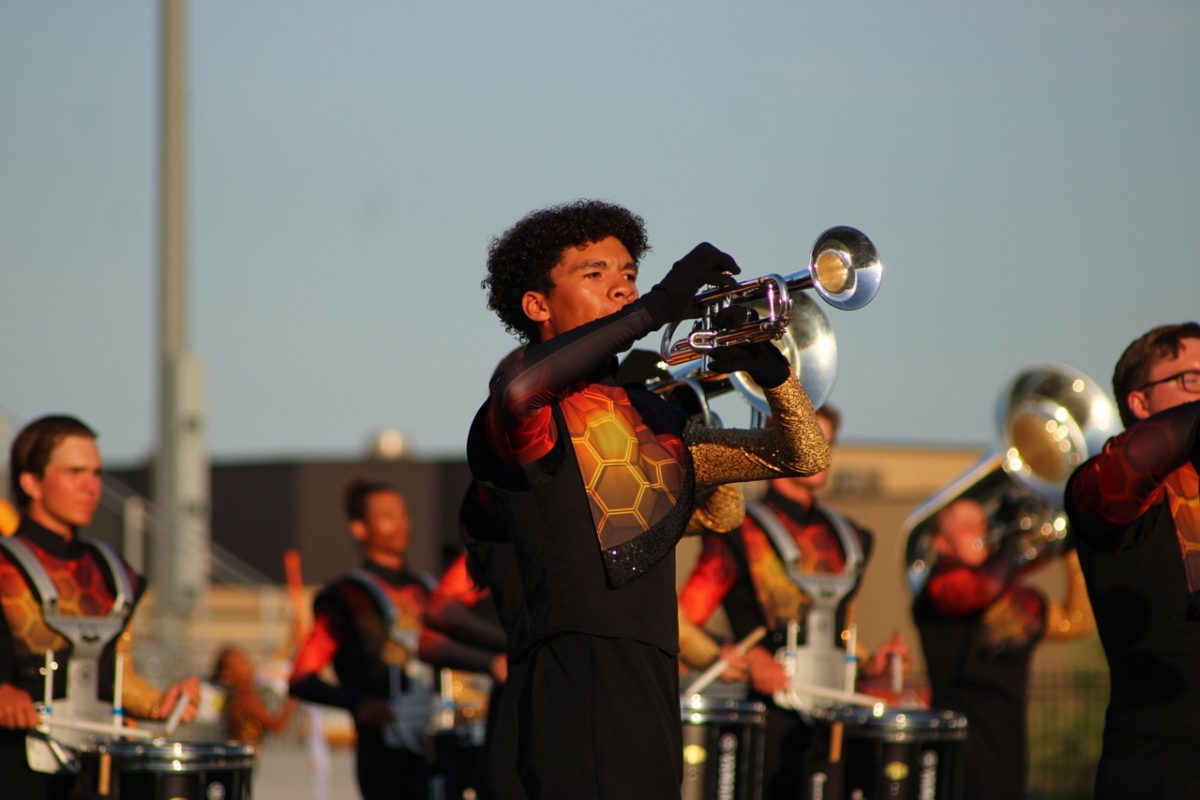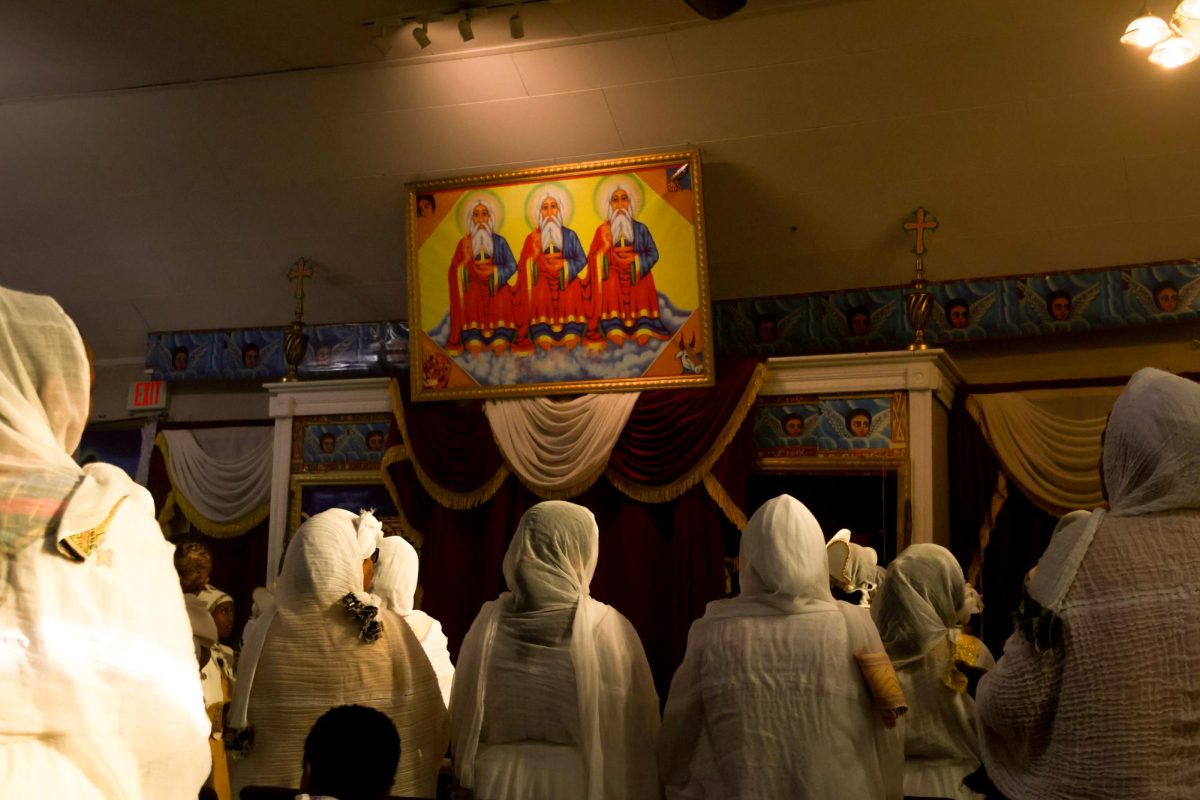When a person walks into a volleyball practice on a Monday afternoon, finds their way to a Monday night show choir rehearsal in the theatre or steps onto the stadium sidelines under the Friday night lights, it’s clear that something bigger than the competition ahead of them is happening. Behind every spike, tackle, and count is a culture specifically built by members and coaches, a culture of commitment, trust, determination, grace, and teamwork. The varsity volleyball, football and show choir students and coaches believe that these values are what transform a group of athletes into a true team. The connection between the teams starts with the the study of the programs’ culture book. According to them, the culture matters just as much as the final score.
The head coach of the Gretna football team, Joe Dalton, said he believes that culture is as important, if not more important, than the skill of a team, and he leads the group to discover how culture can lead to success by reading the book “You Win in the Locker Room First” by Jon Gordon. It discusses the seven Cs for building a winning team in business, life, and sports. Those Cs are culture, contagious, consistency, communication, connection, commitment, and care. Dalton instructs the team by pushing them to live by these examples constantly, and not just in front of coaches.
“Culture is not a some-of-the-time thing. It’s an all-the-time thing. And I think that it is important to make sure that they’re living it out daily,” Dalton said. “The only thing that I don’t like about when people talk about culture is people often have a term or a slogan that they don’t live up to. We always make sure that the slogan ‘we over me’ is the first thought in practice and in games. Do it for your team and don’t be selfish.”
During the season, Dalton stays busy with football practices, weight training, film review, and playmaking. Through all of the stress, his main goal is still to make sure that every player in the program – no matter what team they’re on, from freshman to varsity – feels like a celebrated member of the group.
“I want to make sure that everyone’s a valued member of the team, and I think that everyone gets together really well, no matter what,” Dalton said. “We all want the same goal. We all want the guys to have fun and to win. We also want them to learn and grow together.”
Player Leadership
While in season, Dalton teaches coaches and students the importance of having a player-led team and program. As Dalton reads books and examines real-life examples of what a team’s culture can lead to, he said he realizes that the teams that go the farthest are the ones that share unity within the team through athlete leaders. He even shares stories about when the athletic leadership brought them to state championships and led them to victory.
“It’s important that we try to be a player-led team because player-led teams are the teams that go the farthest,” Dalton said. “During the state championship, I thought that what brought us to the top in terms of something that we were outmatched in was our team leadership, unity, and team bond.”
At season’s end, Dalton reminds the upcoming graduates leaving the Gretna High field and moving on to bigger and better things about what football is truly about and what it teaches them as a person and athlete. For the ongoing members of the program, the season’s end does not associate with the faltering of the team’s culture. Discussion of next season’s “culture theme,” such as the 2025 motto “We over Me,” begins at the end of December, and the team’s focus is on their culture from off-season to preseason reps to starting on stadium turf under the Friday night lights.
“Football teaches you the physical part of life, such as getting knocked down physically and having to get back up,” Dalton said. “You have to learn that the opponent is constantly trying to move you no matter what, and you have to learn not to let that happen.”
Inside the GHS gym, volleyball Head Coach Wendy Loberg leads her team by focusing on culture both in and outside of the gym. Although they are similar in goals, the volleyball team has a different approach to the word culture and what it means to throughout the program.
Every Monday morning, the volleyball team meets in room 215 for a “culture club” meeting to discuss the book “Row the Boat” by Jon Gordon. This kind of teamwork revolves around a nonstop, never-quit attitude towards hardships and triumphs. Through all the challenges of the season, the girls and their captains work hard to spread that attitude to every corner of their gym. On the volleyball courts, captains serve as a significant source of motivation and leadership throughout all levels, guiding their peers as they learn to lead in various aspects of life.
Positive Mindset
“I think that our girls are trying really hard to be great teammates, to build relationships, and just to be great people with high character,” Loberg said. “The captains are learning to lead, and that’s so important because as they leave high school, we want them to have the skills to lead in their future jobs, their families, and communities.”
Along with the teammates and athletes on the court, the coaches on the sideline who are giving feedback and encouragement to the players are focused on their culture as a coaching staff as well. The coaches focus on making the program better, not only with their words, but also with their actions.
“Our coaching staff is really close, and one thing about our coaching culture is if it’s not going to make us better, we don’t want to talk about it,” Loberg said. “Being in a positive mindset helps our team, and we hold each other accountable to that.”
Although the volleyball and football teams focus on their culture with physical endurance and unity on the court or field, the culture of the show choir brings a different type of teamwork to life. Instead of relying on physical strength, the group depends on one another’s voices, movements, and stage presence to create powerful performances. Katelyn Wallace, the director of the varsity show choir team, reads her book of empowerment called “Chasing Excellence” by Ben Bergeron. Wallace says she bases her team culture off of the 10 core values that this crossfit coach created to create unity and a winning culture.
Wallace described her group of show choir members as a dedicated and confident team that can go far. She wants everyone to know that they are all equally important, no matter what, and the most important part to remember is that they are all working towards the same goal.
Fearlessness and Attitude
“Everybody is really driven to achieve the same goal by the competition season,” Wallace said. “Everybody is equally important, and we’re only as strong as our weakest member, and we’re all working towards the same goal.”
The stereotype around show choir is that perfecting choreography and music is key, but Wallace says the true key to any sort of activity or sport is to come into it with strong confidence and a competitive spirit.
“I tell kids all of the time if they come in with confidence and they make mistakes, I can help them. But as long as they come in with fearlessness and a great attitude, I think that we can make magic happen,” Wallace said.
Working so hard throughout the season with long nights and mornings of work, the members grow a tight relationship and bond with each other. This bond consists of love and respect, and peer criticism and encouragement could never be better within the choir room. Wallace said she likes to describe their group as one big family working together for a common goal.
“I think that peers play a big role in the group, just because we are such a big team, and so, I think lifting each other up and staying positive is so important,” Wallace said. “I really believe that the more the team enjoys each other as people, the harder they work for each other in practice. Ultimately, we’re a big team, but we function as one big family.”
The culture of these three groups can ultimately be described by these three coaches in a few words: committed, together and servant-leadership.









